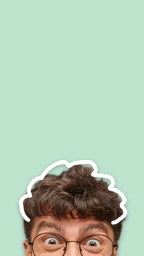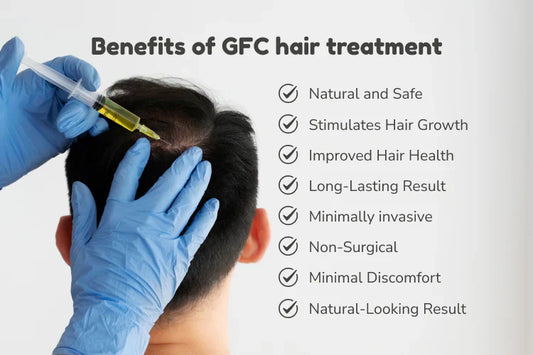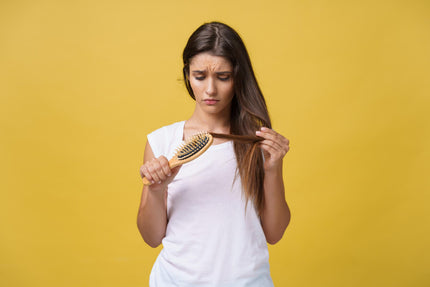
How to Reduce Hair Fall and Increase Hair Growt...
TL;DR Hair fall is not a random event in your life. It always has a cause behind it, the most common ones being hormonal imbalances (like DHT), nutritional gaps, stress,...
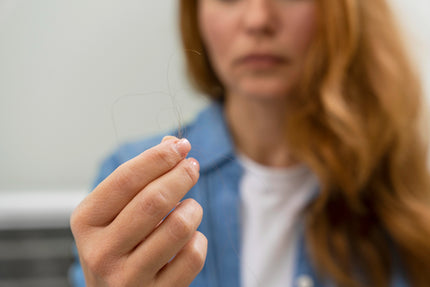
Best Treatment for Thinning Hair: Expert-Backed...
If you are suddenly seeing a lot of hair strands on your pillow or your scalp is becoming visible than usual, then it could be an alarming sign of...
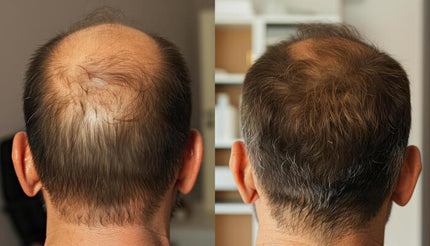
How to Increase Hair Growth Naturally – Proven ...
Summary: Healthy, vibrant hair comes from treating the root causes of thinning, not just the surface. When hormones, nutrition, stress, digestion, or scalp health are out of balance, growth often...
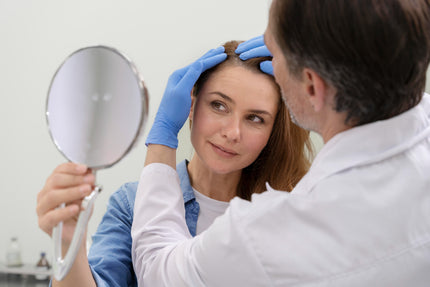
How to Increase Hair Growth: Effective Methods ...
Blog Summary Hair loss affects many people, but effective solutions exist when you understand what's disrupting your hair's natural growth cycle. Common culprits include hormonal imbalances, nutritional deficiencies, chronic stress,...
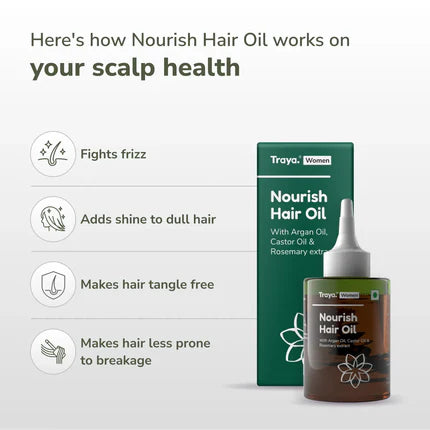
Best Hair Oil for Dandruff and Hair Fall – Ayur...
Summary Dandruff and hair loss are interconnected issues that require a unified approach to treatment. When your scalp's ecosystem becomes imbalanced, fungal overgrowth and inflammation cause flaking while simultaneously weakening...

How to Increase Hair Growth for Men: A Complete...
Summary Male hair growth is influenced by genetics, hormones, nutrition, lifestyle, and scalp health, with DHT sensitivity being the leading cause of thinning. Poor diet, chronic stress, and scalp buildup...
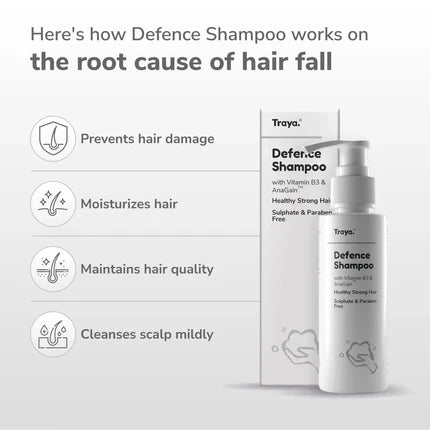
Best Ayurvedic Shampoo for Hair Fall – Gentle Y...
Summary When dealing with hair fall, Ayurvedic shampoos offer a natural alternative to chemical-laden products, which can irritate the scalp and worsen hair loss over time. Unlike these harsh shampoos,...
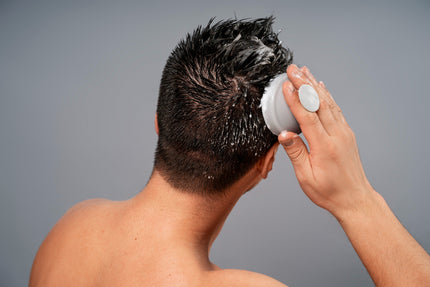
Doctor Recommended Shampoo for Hair Fall: What ...
Summary Hair fall is rarely just about having a dirty scalp. It is often caused by deeper issues such as DHT sensitivity, scalp inflammation, poor circulation, nutritional gaps, and stress....
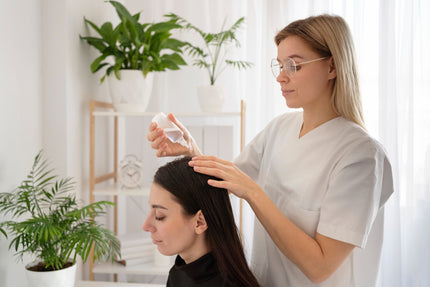
Ayurvedic Treatment for Hair Fall: Heal the Roo...
TL;DR Ayurveda sees hair fall as a sign of internal imbalance, not just an external problem. Common causes: excess Pitta dosha, weak digestion, and stress. Treatment works in 3 ways:...
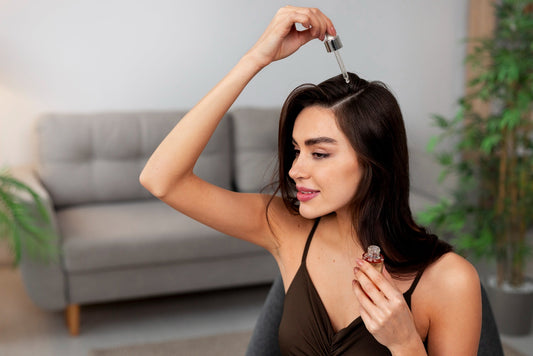
Best Hair Growth Oil Recommended by Doctors in ...
Summary Hair fall is one of the common concerns faced by Indians, followed by other related issues like dandruff, dryness and many more. When it comes to a solution,...

Best Hair Serum for Hair Growth and Thickness i...
Summary: Hair serums for growth and thickness go beyond adding shine, they deliver active ingredients directly to the scalp and follicles. The right formulations with Redensyl, Procapil, peptides, amino acids,...

Best Treatment For Fast Hair Growth: A Guide By...
Summary: Hair grows about 0.5 to 1.5 cm per month through a cycle of growth, transition, and rest, but stress, hormonal changes, poor nutrition, and scalp buildup can slow it...
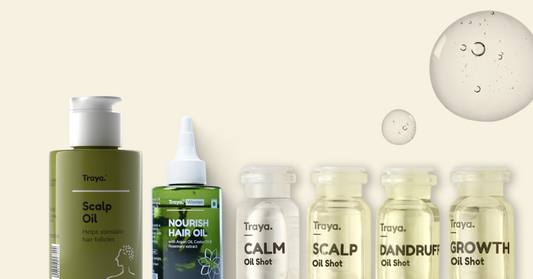
Best Anti-Hair Fall Oil: Strengthen Your Roots ...
No matter your age, gender, or lifestyle, hair fall is a worry that almost everyone faces at some point. For some, it’s the strands left behind on the pillow, for...

Remedies You Can Try for Hair Fall at Home
If combing or just waving your palm through your hair has started leaving a lot of hair strands on your comb or palm, then you are having a hair fall...

The Science Behind a Personalized Routine for Hair
If you’ve ever felt frustrated staring at a shelf full of half-used shampoos, conditioners, and serums, this is a struggle many people face. The cycle is familiar: you buy products...

Natural Hair Regrowth Treatments That Actually ...
Trying to grow your hair back the natural way? Skip the chemicals and expensive treatments, here’s what you can do instead. This detailed guide focuses on effective natural hair regrowth...

Best Medication For Male Pattern Baldness
Are you looking at more hair in your shower drain or looking back in photos to your hairline crawling? Then you are not alone. The male pattern baldness is super...

Complete Ayurvedic Guide for Hair Loss: Herbs, ...
Your hair fall is not just a cosmetic issue. It is one of the most important signs of deeper imbalances within your body. Nutritional deficiencies, stress, hormonal shifts, and toxins...

Best Treatment For Hair Fall at Home
Are you struggling with hair fall but want to stop it without salon treatments or chemicals? The question is how? The solution lies in your home kitchen. You don’t need...

How to Grow Hair Faster Naturally: 7 Proven Tip...
Looking for ways to grow your hair faster without chemicals or medications? You’re not alone. Whether you're dealing with thinning, breakage, or simply hoping to boost your hair's natural length,...

Redensyl Benefits: Why It’s Trending & How It W...
Did you hear about Redensyl? It is a molecule with lots of promise around hair care. What makes it stand unique in the crowd is that it is directly extracted...
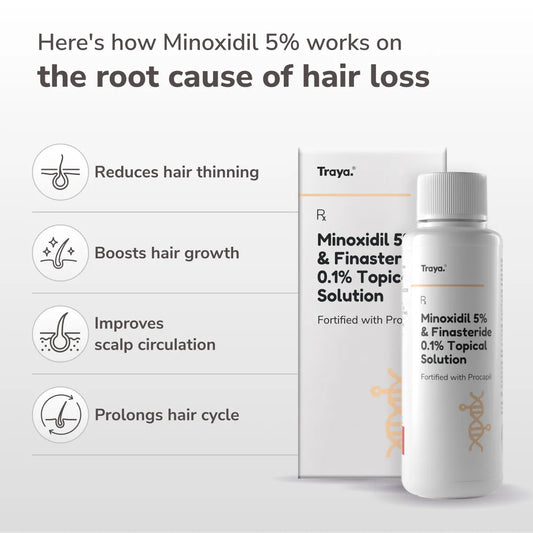
Minoxidil vs Redensyl: Which Works Better for H...
Are you confused between Redensyl vs Minoxidil for hair growth? You’re not alone. With hair loss becoming increasingly common among both men and women, many people are on the lookout...
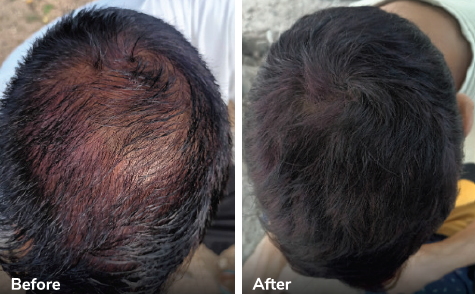
How to Use Minoxidil for Hair Growth
Struggling with hair thinning and wondering how to use Minoxidil for hair growth effectively? You’re not alone. Whether you're just starting treatment or haven’t seen the results you hoped for,...
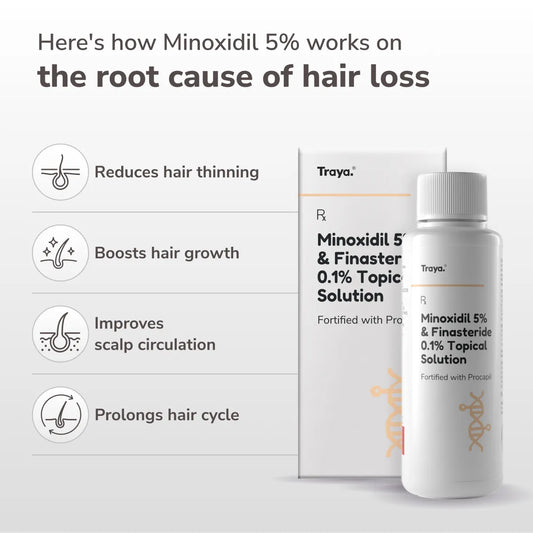
Minoxidil for Hair Regrowth: Real Science, Real...
Hair fall rarely begins with a dramatic clump in your hand. It starts slowly. Maybe a few more strands on your comb. A slight widening of your part. A moment...
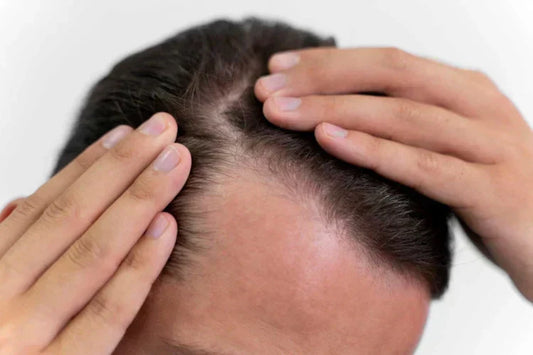
Hair Fall in Your 20s? Here's How Minoxidil Can...
Hair fall in your 30s? Understandable. But in your 20s? That catches you off guard. You're not imagining it - hair fall is getting more common, and not just in...
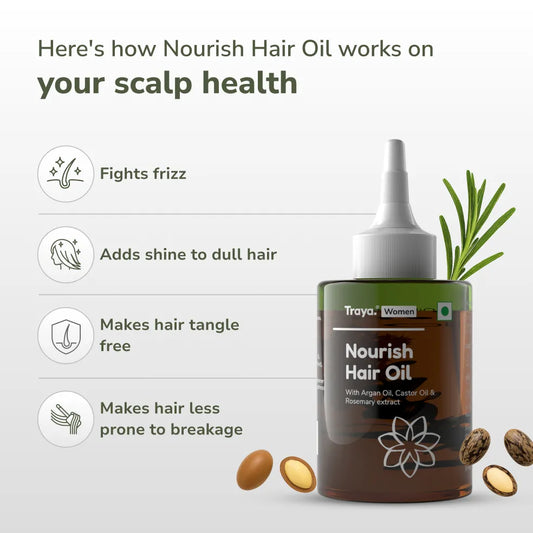
Top Oils Backed by Science for Hair Regrowth
If you're looking for the best hair growth oil recommended by doctors, chances are you've tried a few already, maybe coconut, rosemary, or a DIY blend passed down through generations....
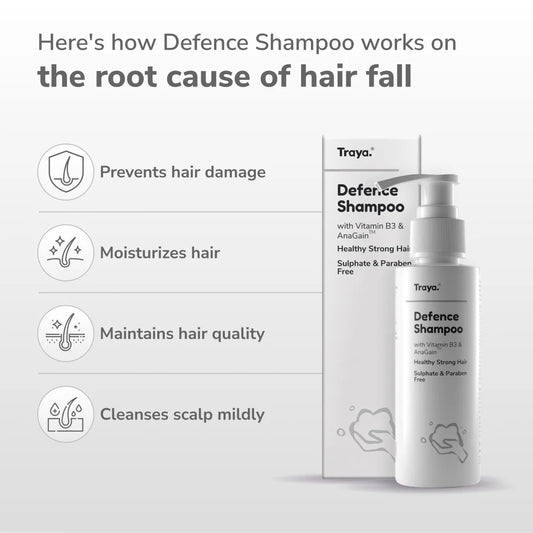
Why the Best Shampoo for Hair Fall Isn't Enough...
A thinning braid. Extra strands in the shower. A scalp that’s becoming harder to ignore. It might feel like a surface issue, but hair fall is often your body’s way...
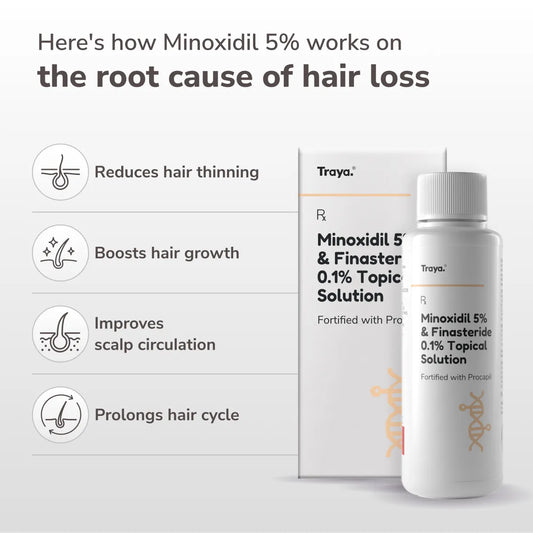
Minoxidil: Benefits, Side Effects & Who Should ...
Hair loss is something a lot of us deal with these days, whether you’re a man or a woman. And finding the right fix? That’s the tricky part. Sometimes, the...
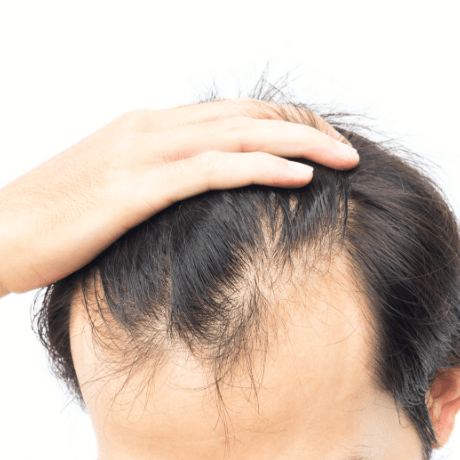
How to Stop Receding Hairline? 4 Best Treatment...
A receding hairline can cause anyone to feel anxious about their hair. Questions like, “Am I getting Bald?” and “Is this the beginning of losing all the hair?” creep into...


